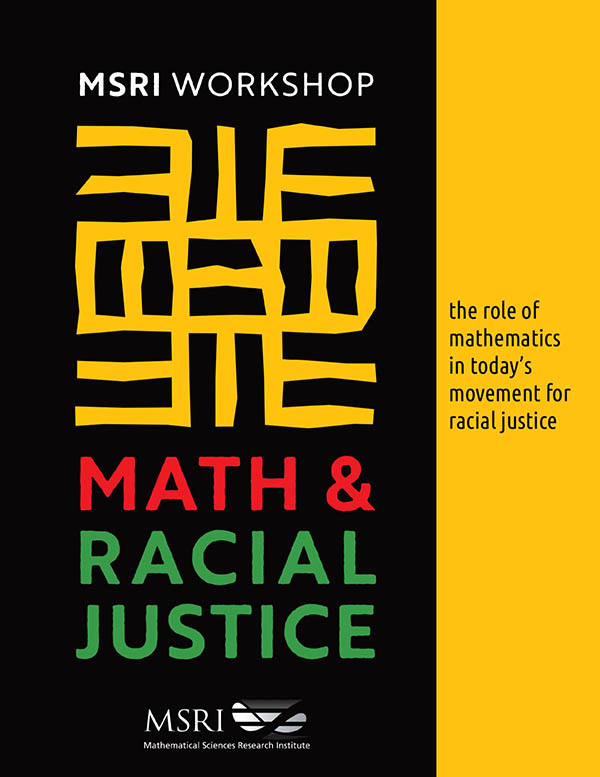In June of 2021, MSRI held a virtual Workshop on Mathematics and Racial Justice, which convened nearly 300 mathematicians, statisticians, computer scientists, and STEM educators to critically examine the role that mathematics plays in today’s movement for racial justice. A free and publicly available compendium on the workshop has been released on the occasion of Juneteenth 2022. Videos from this workshop are also available to view online.
About the Volume

Mathematics is often viewed as one of the main tools responsible for scientific progress, and developments in mathematics are behind some of society’s most significant technological advancements. While mathematics has been used to push society forward, there are also well documented instances of mathematics being used as a tool of racial oppression. The inequities faced by the Black community have become more and more difficult to ignore, and mathematicians have increasingly been answering the call to engage with issues of social justice within their research, their teaching, and in the broader scientific community. This workshop and the resulting compendium are a part of this movement and make the distinct contribution of centering issues of mathematics and racial justice, with focus on the Black community.
The 2021 keynotes by Robert Berry (University of Virginia) and Rediet Abebe (University of California, Berkeley) set the stage for this volume: Berry, by presenting a historically-informed view of the way mathematics education as it is often implemented dehumanizes people of color, and Abebe, by demonstrating the power of data and computer science to study social problems and guide their solutions. Following their contributions, the workshop was divided into four primary thematic areas, which have also guided the organization of this compendium: Bias in Algorithms and Technology; Public Health Disparities; Racial Inequities in Mathematics Education; and Fair Division, Allocation, and Representation.
The 2021 workshop was organized by Omayra Ortega (Sonoma State University), Robin Wilson (California State Polytechnic University, Pomona), Caleb Ashley (Boston College), Ron Buckmire (Occidental College), Duane Cooper (Morehouse College), and Monica Jackson (American University) and supported by the American Mathematical Society (AMS), the Center for Minorities in the Mathematical Sciences (CMMS), the Mathematical Sciences Research Institute (MSRI), the National Association of Mathematicians (NAM), the National Science Foundation (NSF), and the Society for Industrial and Applied Mathematics (SIAM).